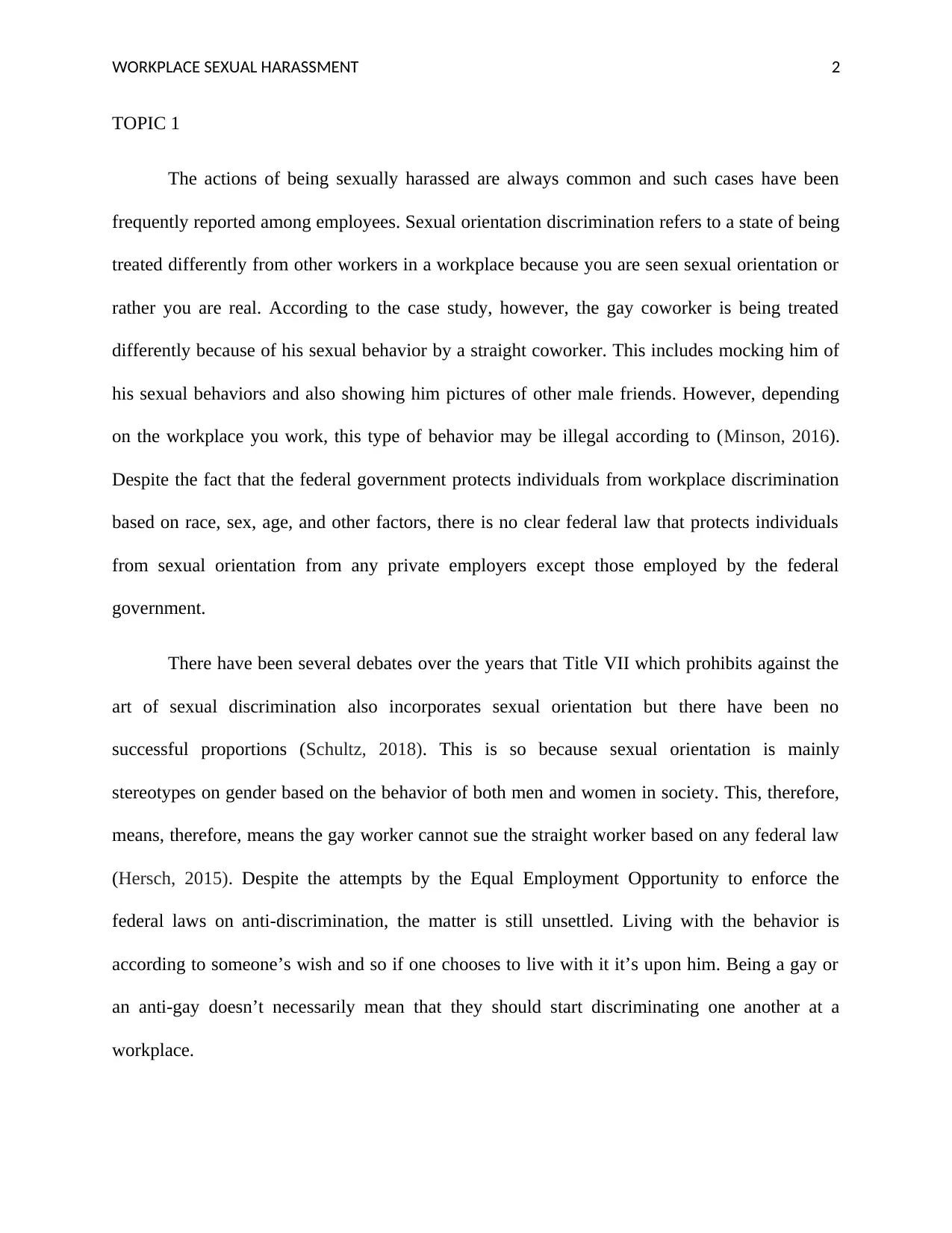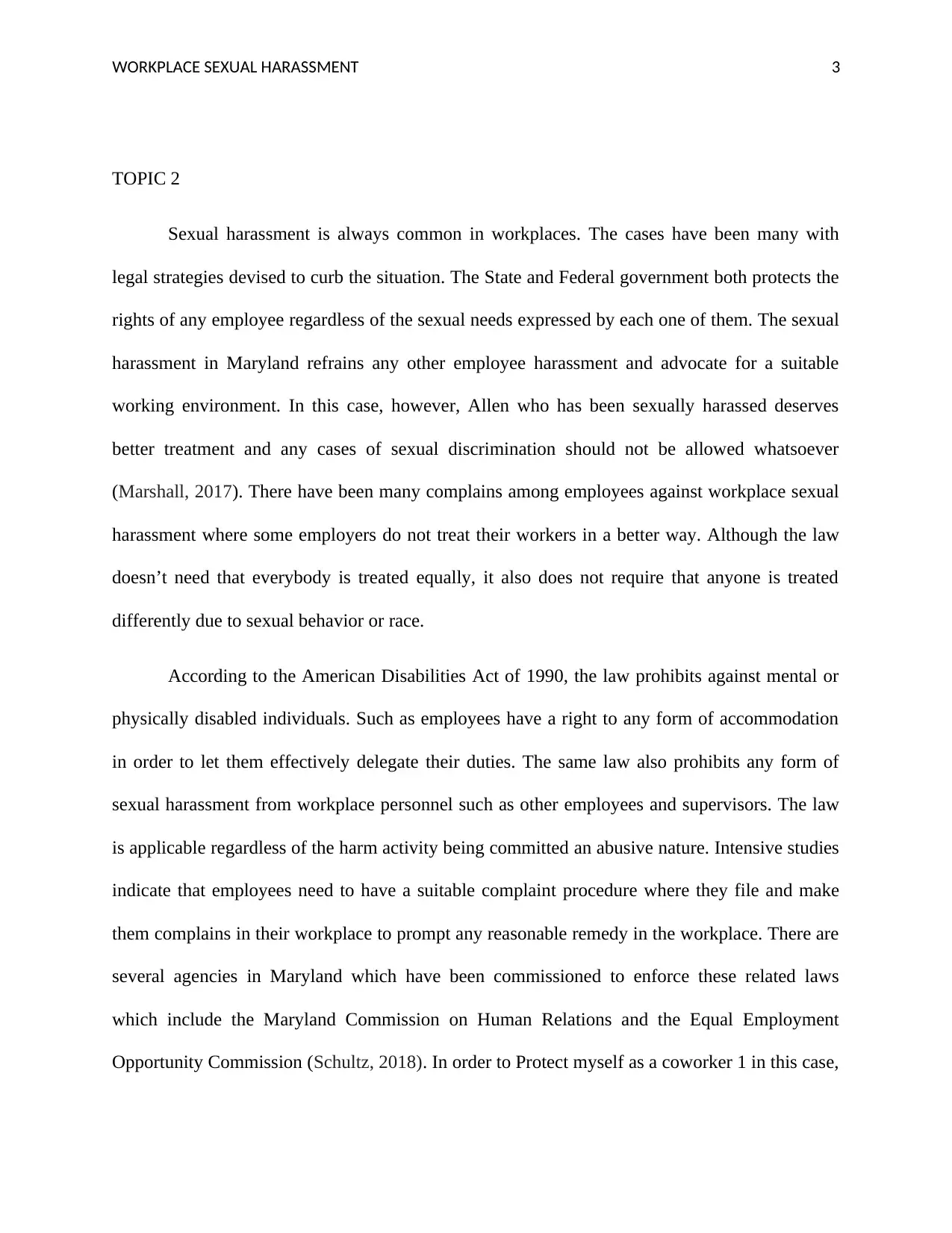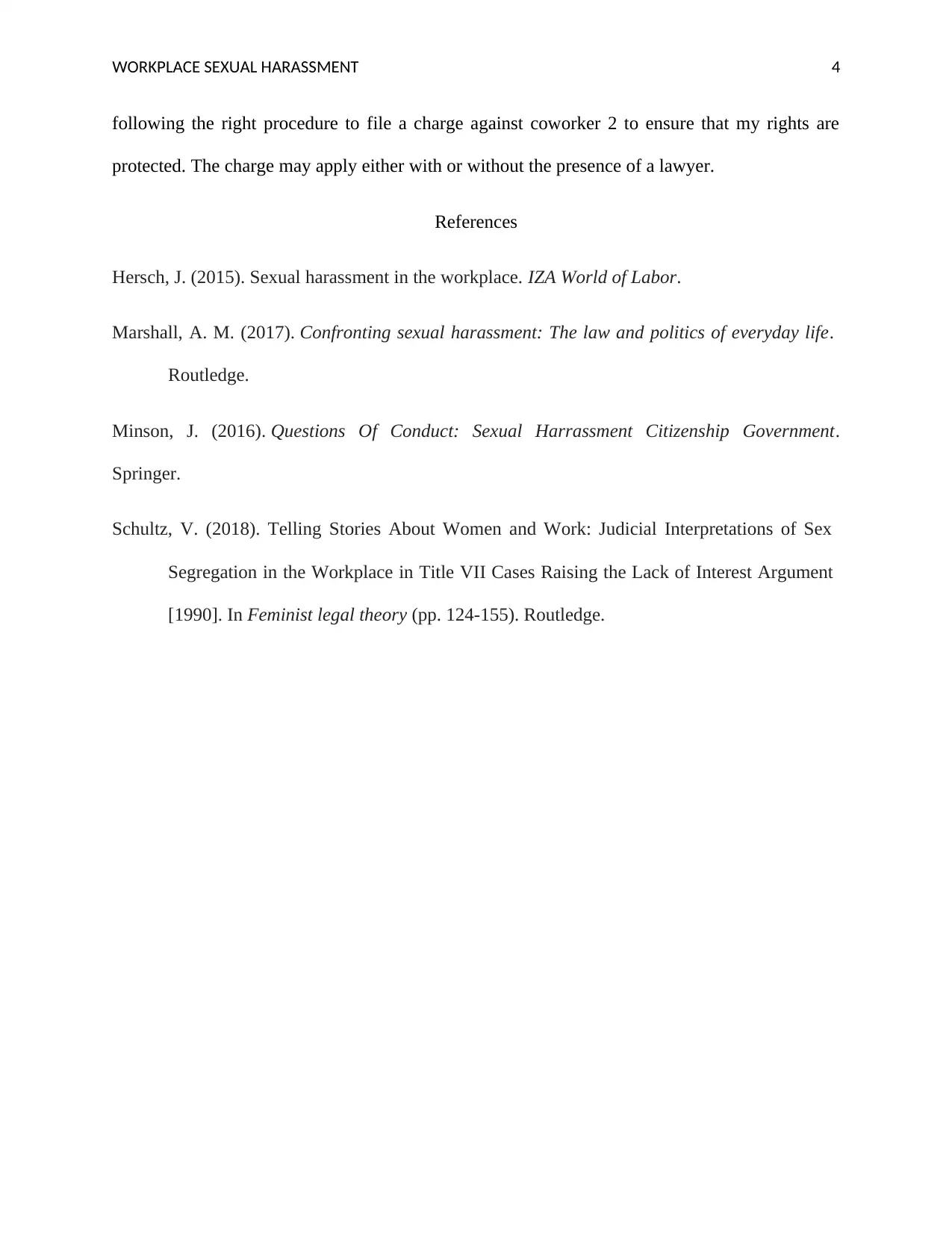Legal Analysis of Workplace Sexual Harassment: A Detailed Report
VerifiedAdded on 2023/01/20
|4
|794
|81
Report
AI Summary
This report examines a case of workplace sexual harassment, focusing on the legal implications of anti-gay harassment. The assignment analyzes the scenario where a gay employee is subjected to sexually suggestive remarks and offensive behavior by a straight coworker. It addresses the legal questions raised by the supervisor regarding federal and state laws protecting against such harassment, specifically exploring whether federal law provides protection based on sexual orientation and the potential for the gay employee to pursue legal action. The report delves into the complexities of workplace discrimination, the limitations of current federal protections, and the importance of state laws and employer policies in addressing and preventing harassment. Furthermore, the report references relevant legal precedents and scholarly articles to support its analysis, emphasizing the need for clear workplace policies and procedures to protect employees from harassment, regardless of their sexual orientation.
1 out of 4










![[object Object]](/_next/static/media/star-bottom.7253800d.svg)